Pa. farmers, rescue owners reflect one year after East Palestine train disaster
DARLINGTON TWP. ― The menacing cloud that soared within eyeshot of Rachel Wagoner’s fourth-generation family farm last February marked the start of a restless, but pensive, year for the co-manager of Tall Pines Farms.
Wagoner’s small pastured-raised beef and lamb operation in Beaver County, Pennsylvania, sits less than 4 miles from the site of Norfolk Southern’s Feb. 3, 2023, train derailment in East Palestine, Ohio.
Days after a mass of train cars containing highly toxic chemicals derailed near the Ohio-Pennsylvania border ― burning for days and spilling into East Palestine tributaries ― the rail company facilitated an hours-long vent and burn of industrial vinyl chloride, insisting the burn would temper the risk of an explosion.
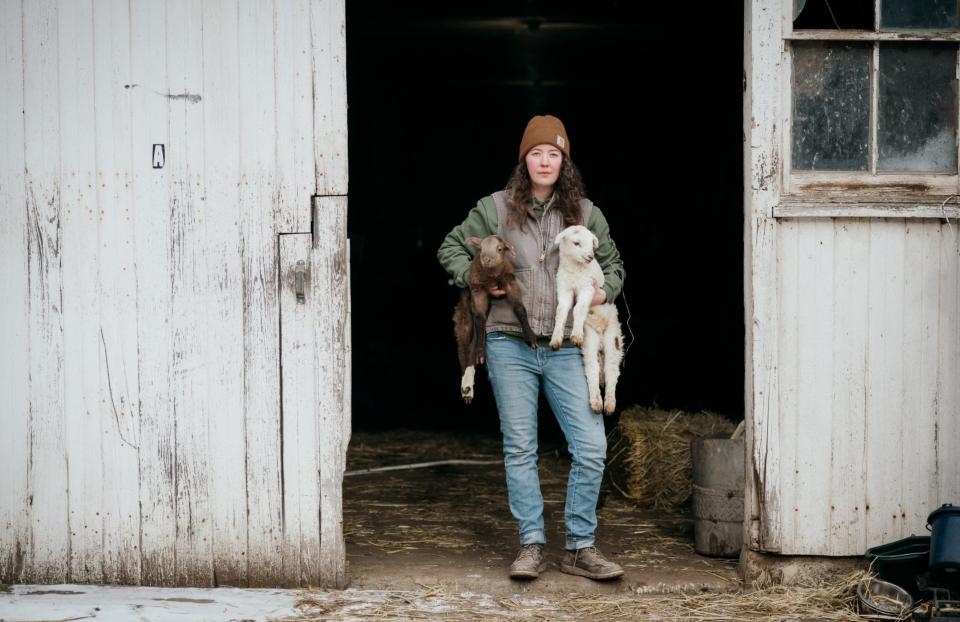
Residents within 1-2 miles of the site were ordered to evacuate just hours prior, risking what Pennsylvania leaders called “grave danger” if they remained.
Wagoner, just outside of the evacuation zone and given little time to evacuate her sheep, lambs and cattle, sheltered in place as the noxious fumes wafted into Beaver County.
She “hoped for the best,” for her land, livestock and family.
‘Life moves on, especially on the farm’
In the months that followed, Wagoner hosted a steady rotation of politicians, state and federal regulators and journalists at the farm. She reinforced her communication with customers to head off product safety concerns as regular testing confirmed her farm was clear of detectable chemical exposure.
As a direct-to-consumer business, Wagoner wasn’t sure if she’d lose customers amid the publicity and lingering concerns about air, water and soil pollution throughout Beaver County and eastern Ohio.
Wagoner, so far, hasn’t lost business despite knowing others in the region who have.
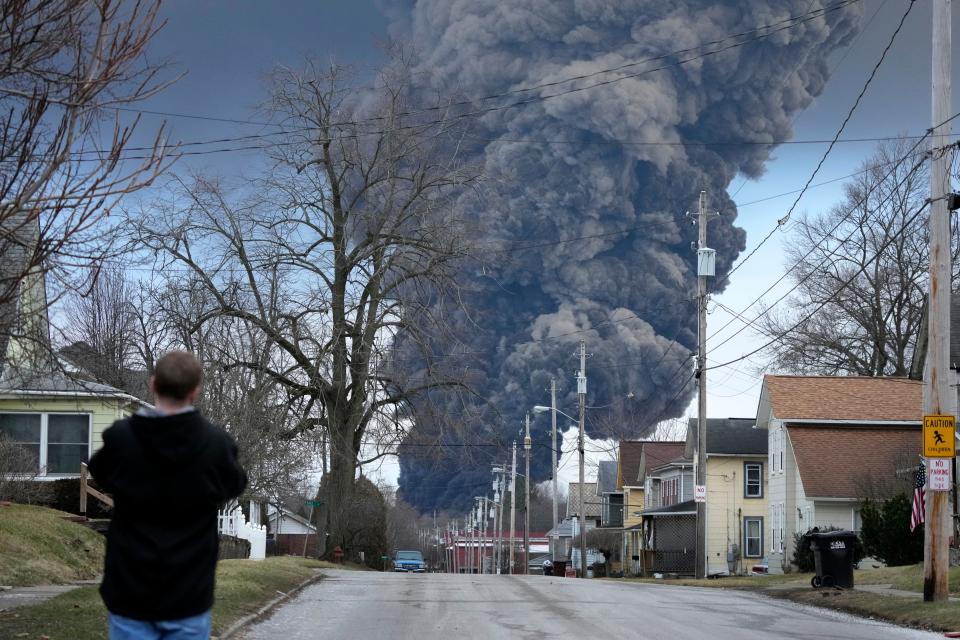
“I don’t know if it’s just because we were not taking any animals to butcher at that time and there wasn’t an overlap of people seeing the big, dark cloud and thinking, ‘I have a half-cow from this person: What are the impacts going to be?’ Those same cows were out during everything, but we took them to butcher later in the year. It’s interesting because it’s just the visual in people’s minds. Other farmers I know had people back out last February.”
More: Even 100+ miles from the Ohio derailment, Pa. residents are asking: Should I be worried?
This, Wagoner said, “probably just speaks to our customers and the trust they have in us.”
“We are completely transparent and I think certain people really appreciate that,” she said. “It makes them feel good about what we’re producing.”
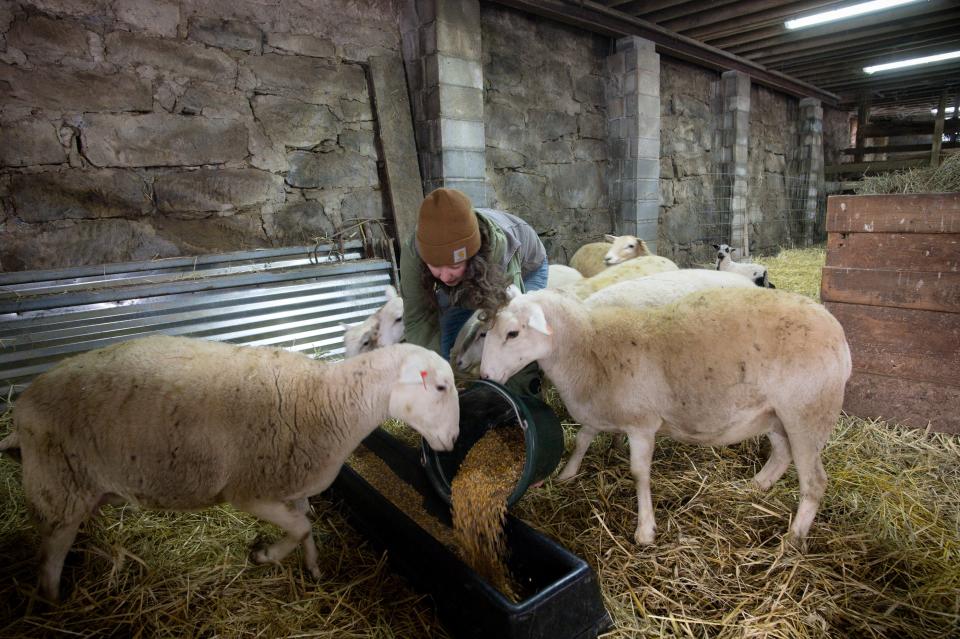
As some Beaver County landowners near East Palestine pack up for what they hope are greener pastures, Wagoner said she and the farmers she knows are “ready to move on."
“In the minds of people who don’t live here, they’re still seeing the big, black cloud from the news,” she said. “Meanwhile, in May, I’m just thinking about the fact that it was really dry and the grass wasn’t growing like it should be and how I was going to manage my animals around that. Still, I had to talk about the derailment. Life moves on, especially on the farm. The animals don’t know about any of that. They have their needs and the land has its needs. We have to take care of it.”
Wagoner, who criticized Pennsylvania’s initial emergency response that largely overlooked rural Beaver Countians near East Palestine, said learning from those mistakes is crucial – as is continued support for those in agriculture who need it. The long-term environmental, health and economic consequences of the crash are still unknown.
“It should not have happened, but all we can do is deal with it now,” Wagoner said. “We can’t go back and change it. We can only respond to it.”
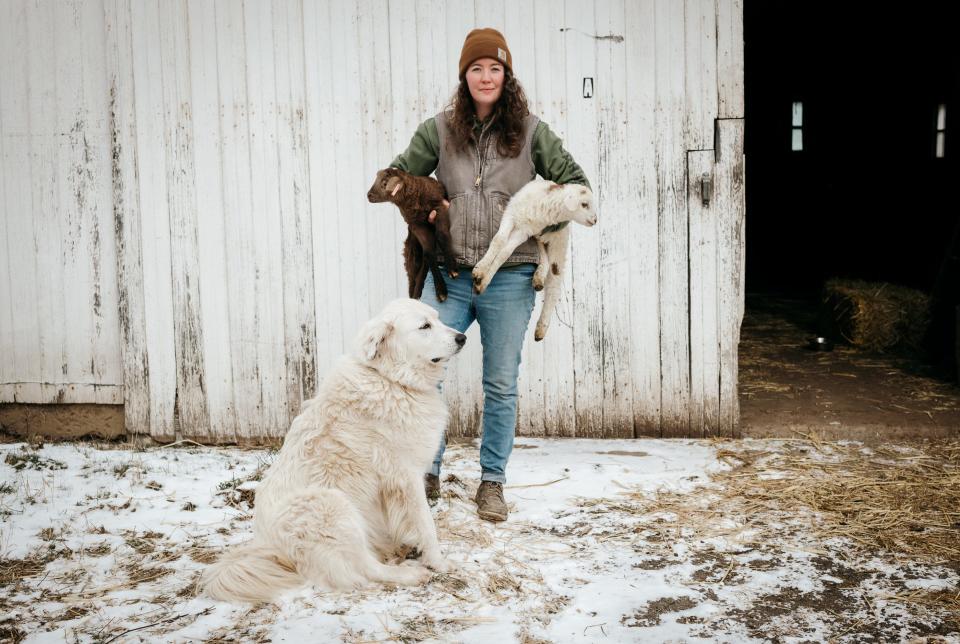
'Looking for reassurance'
In the initial aftermath of the derailment, many farmers felt government officials did not share enough information or acknowledge how the chemical burn-off could affect producers, said Cliff Wallace, president of the Beaver-Lawrence Farm Bureau.
He said he provided videos and photos demonstrating that residue from the fire had drifted down onto local farms. After that, he said, cooperation with government agencies improved.
Farmers were looking for reassurance that their products were free from contaminants and safe to market, Wallace said, with some wondering about the garlic or wheat plants that were growing at the time of the crash.
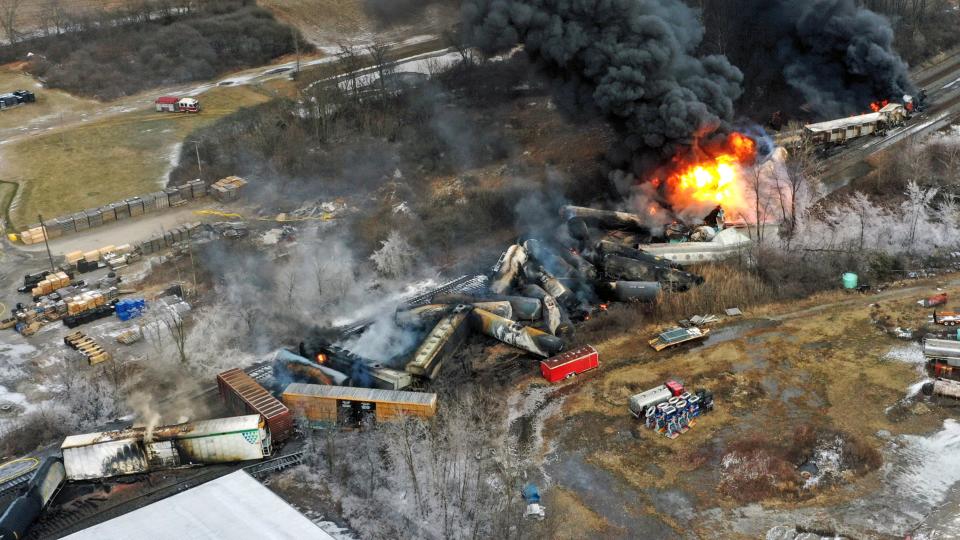
“If the crop producers had been told that their crops were tainted, there would have been thousands of acres shut down,” Wallace said. “What would you do with that stuff? So we needed that documentation. We needed it in a timely manner.”
Early testing indicated that soil and water in the region were safe, but farmers were also concerned about the impact of airborne pollution on crops. So, Wallace said, the Pennsylvania Department of Agriculture agreed to test about 15 farms, taking samples from grass, garlic, grain, hay and blueberry bushes.
More: Beaver Countians near East Palestine train crash rush to confirm safe water
In late June, the state reported no evidence of contamination in these products.
“Then, all of us could move forward, harvest the growing crops, continue to do what we did and reassure customers,” Wallace said.
Some farmers on the Ohio side of the border lost business simply because of their address in East Palestine, the site most closely associated with the train derailment, Wallace said. A few of them, he said, even removed the village name from their signage.
That problem wasn’t as significant in Pennsylvania, Wallace said. He knows of at least one beef producer who opted to sell off his steers after the derailment and moved on to other ventures. However, others were able to regain a sense of normalcy.
‘A sizable need’
About four miles from the derailment in South Beaver Township, Kindred Spirits Rescue Ranch owner Lisa Marie Sopko chose to evacuate nearly 80 large farm animals under her care before the Feb. 6 chemical burn.
As the roads near her animal sanctuary closed, she asked her Facebook network for help transporting and temporarily sheltering her animals. Sopko was soon connected with Hookstown Fairground operators, who offered her the space. Volunteers rushed to help out, some traveling from neighboring states.
By the end of the day-long evacuation, “the plume was over us,” Sopko said, noting her burning eyes and stinging skin.
Sopko and her rescues returned to the ranch two days later, after independent air quality testing indicated the air was safe.
“We may see something years down the line, but nothing has drastically affected us and I feel very lucky,” she said.
Sopko hasn’t noticed health or behavioral changes in her animals since the disaster, but the derailment did expose sizable emergency response needs in Beaver County, she said.
“It definitely gave us a run at what it looks like to evacuate a large farm in an emergency situation,” she said. "One of the things we need is more land, because there are not many places to take farm animals in a situation like that. We were extremely blessed that the fairground opened up for us. I think this is a situation a lot of farmers would run into in that situation.”
Kindred Spirits is working to secure the 108 acres of land next door as a staging ground for future farm animal evacuations.
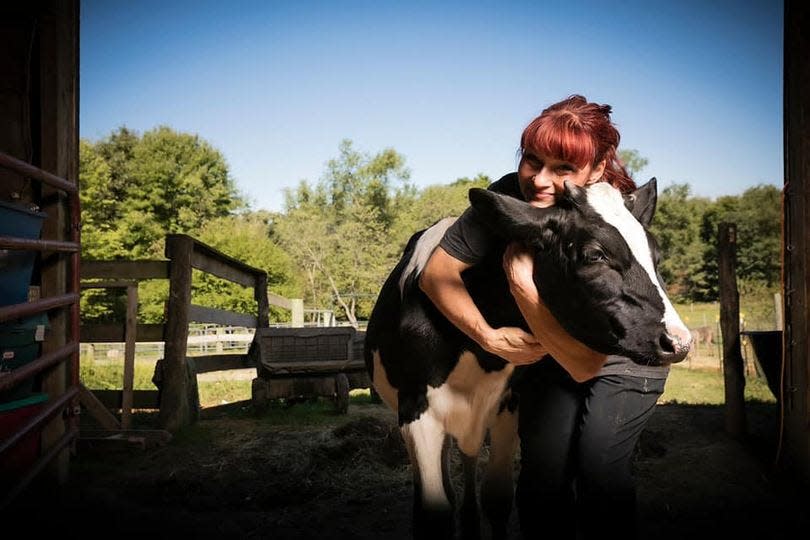
“We can have more space for not only our animals, but for other animals that might need to evacuate in an emergency,” Sopko said.
As a private donation-based organization, the rescue has received some grant funding from small foundations, but not enough to expand. Efforts to reach Norfolk Southern for a potential contribution and other sources of funding have been “quite disappointing,” Sopko said.
“We have more animals now than we did then,” she said. “There are lots of ways to help us, but nothing so far. State Sen. Elder Vogel’s office seemed somewhat interested in helping us find solutions and we presented some to them, but nothing has come of it yet.”
USA Today Network reporter Bethany Rodgers contributed to this report.
This article originally appeared on Beaver County Times: Pa. farmers, rescue owners reflect one year after East Palestine disaster

